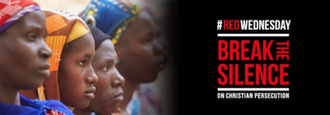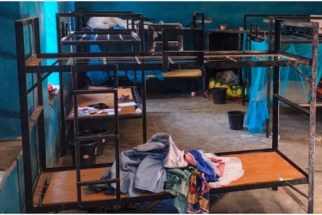Report documents 'an explosion of violence' in Africa

Dr John Newton gave the following talk at the launch of Aid to the Church in Need's report: Religious Freedom in the World: Africa Update in the Houses of Parliament last Tuesday.
Africa has seen an explosion of violence during the period under review.
In sub-Saharan Africa it has been driven by jihadist groups, who have systematically persecuted everyone who does not accept their extremist Islamist ideology.
And from the outset it is worth stressing the point made by ACN's project partner Bishop Laurent of Dori in Burkina Faso: "The Islam of the armed groups is not the Islam of our brothers." He goes on to point out that ordinary Muslims also find themselves on the receiving end of attacks from jihadists. So it is worth labouring the point: these jihadist groups have persecuted everyone who does not accept their extremist ideology.
As we saw in the video, violence perpetrated by militant Islamist groups in the Sahel and Somalia "accounted for 77% of the total reported violent events across Africa in 2022".
The Sahel accounted for 40%.
And Somalia for 37%
And as a correlative of this, civilian deaths rose from 4,307 in 2021 to 7,220 in 2022
The Africa Center for Strategic Studies, whose figures those are, concluded that "militant groups are not focused on winning hearts and minds so much as intimidating local populations into compliance".
In many cases the violence is driven by a toxic alliance between Islamist jihadists, organised crime, and home-grown bandits, profit-driven mercenaries, or local fighters pursue local interests incited by extremist preachers. And in the most violent cases they are armed by terrorist groups.
The flourishing of radicalisation and violent extremism in sub-Saharan Africa has not come out of nowhere. It can be attributed to a number of social factors including: poverty, lack of any effective state presence, widespread unemployment, corruption, a lack of access to resources, separatist movements, and pre-existing intercommunal violence.
All these factors combine to fuel resentment and provide an opening for extremism.
Jihadist movements take advantage of that opening for their own ends.
And it is worth adding that in the category of pre-existing intercommunal violence we would place the conflicts between Fulani herders and members of the farming community in Nigeria. Going back to the 1970s there were skirmishes as cattle moved onto farming land and ate crops. But for at least half a decade our partners on the ground have been very clear that the problems most many people refer to as herder/farmer clashes in the Middle Belt today are a very different problem. When churches are attacked and people killed or seized; when Christian villages are targeted by men with AK47s riding in on trucks or motor bikes: this is not about herder/farmer clashes - even if in many cases the attackers appear to be of Fulani ethnicity.
US intelligence groups have provided mounting evidence that these groups are being trained by Boko Haram. We may well be seeing members of the Fulani herder community becoming radicalised for many of the reasons stated above. It is a very plausible hypothesis that as they lost access to traditional grazing routes poverty and other factors have left the community rife for exploitation by radical groups.
For me, one of the key findings of Aid to the Church in Need's Religious Freedom in the World report was that jihadist groups such as Daesh (or ISIS) and Al-Qaeda do not create new divisions: They exploit and deepen existing ones.
But, while it's very worthwhile to look at underlying causes and analyse what's driving the crisis, we should not forget that it is real people whose lives are touched and sometimes torn apart by this growing extremism.
In the video we saw the case of Deborah Samuel, the 22-year-old Christian who was stoned to death and then set on fire for posting remarks on her WhatsApp study group that offended a handful of her Muslim classmates. One young woman's life was snuffed out because of a social media post.
But then there's also Leah Sharibu. Leah was one of more than 100 schoolgirls kidnapped by Boko Haram back in February 2018. Leah Sharibu was the only Christian student and the only captive not to be subsequently released - because she refused to renounce her Faith as the price of her freedom.
LINKS
Aid to the Church in Need (ACN) Religious Freedom in the World: Africa Update: https://acnuk.org/resource/acns-africa-update-religious-freedom-in-the-world-report-2023/
ACN: www.acnuk.org


















